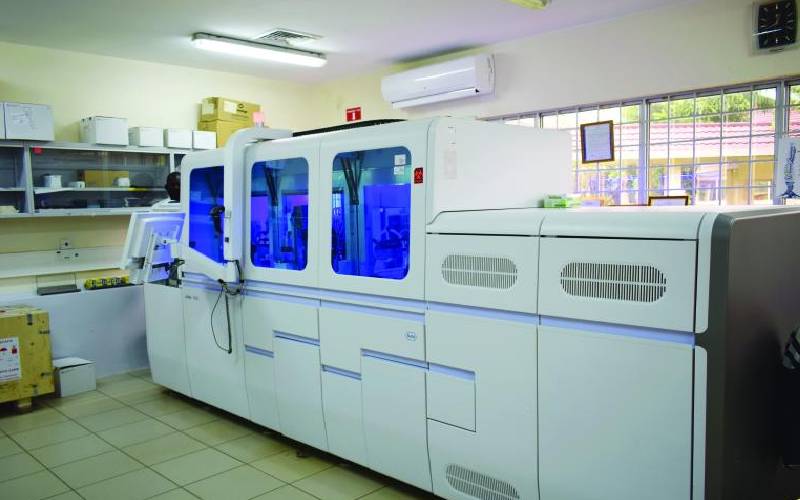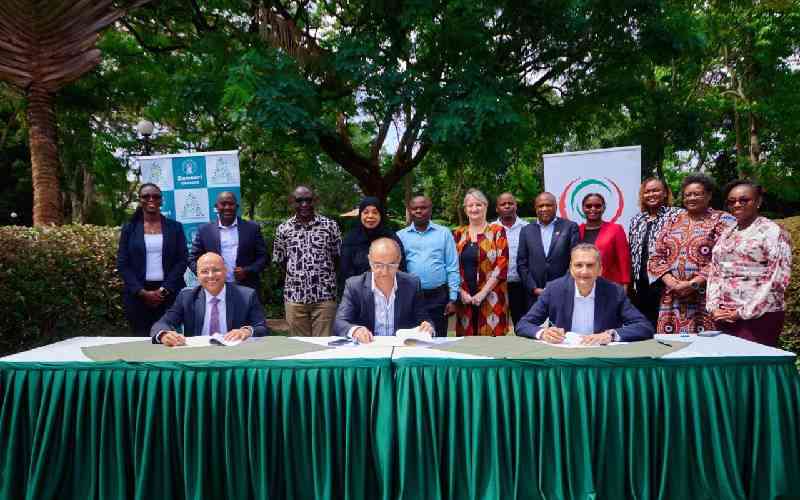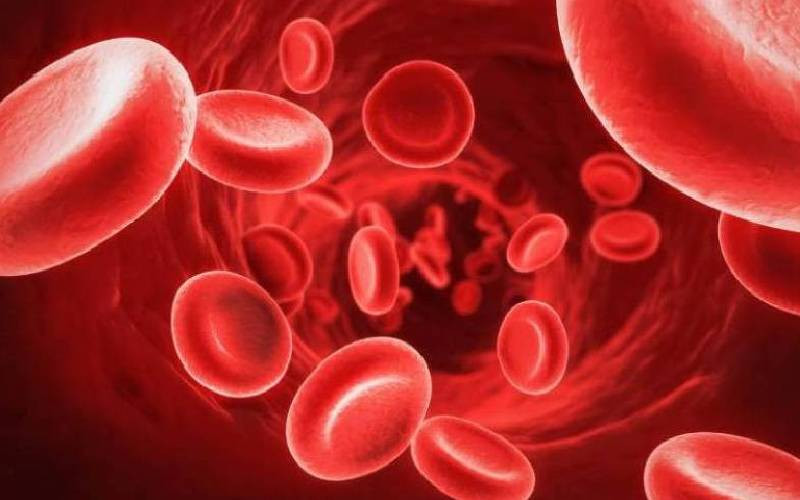
The Cobus 8800 HIV Viral load testing machine at the Kemri Laboratory in Kisian-Kisumu. The machine, which has the capacity to test 37,933 samples in a day, has run out of reagents and is no longer in operation. [Mactilda Mbenywe, Standard]
The Kenya Medical Research Institute (Kemri) has gone back to ‘manual’ testing of coronavirus due to lack of reagents.
This revelation comes amid protests by more than 100 Kenyans flown home from abroad that they were yet to receive results of samples taken one week ago.
The group, quarantined at the Kenya Medical Training College (KMTC) in Nairobi, yesterday protested that the ministry had abandoned them.
“Nobody is talking to us. We have finished the mandatory 14-day quarantine and we need to go home, yet they are not giving us our results,” said Bakari Ahmed who was repatriated from Dubai on May 14.
Acute shortage
Initially, Matilu Mwau, the Kemri deputy director, said the delay could be due to the fact that they have resorted to manual testing caused by lack of reagents needed for automatic tests. But last evening, the returnees were told they have to be tested again as their samples could not be traced.
Even though Kemri had said they have the capacity to test thousands of samples in a day, it has become impossible to do so because of what Prof Mwau terms as an acute shortage of reagents globally.
“The automated kits have not been delivered. We have gone back to using manual kits and it is tedious. We are working all day, but we cannot do large volumes of tests. It is challenging, but we are doing our best,” he said, adding that they are expecting more than 180,000 reagents for the automatic machines, and once they receive them, they will be able to relay results faster.
In early April, Kemri announced that they have an automatic machine, Cobalt 8800, that has the capacity to test more than 30,000 samples in a day.
“The machine has the capacity to test 37,938 samples in one day. The results are also very fast, and this is good news because people will not have to wait too long to know if they have the virus,” Mwau had said.
It is now emerging that the use of automatic machines has not been sustainable because the reagents have to be imported, and there are not many flights that are willing to come to Africa.
“As soon as we get the kits, things will start moving faster. We are excited about the possibility of getting them as soon as next week,” said Mwau.
Kenyatta National Hospital, Kemri, Moi Teaching and Referral Hospital and Coast General Hospital were listed as some of the institutions expected to scale up the testing, but they are also grappling with low number of test kits.
Joel Migwi, who is quarantined at KMTC, said even the normal tests such as checking their temperature and other symptoms that were being done by medics at the institutions have since stopped.
“Since they took our samples, they have never come back. Anytime we ask, we are told that nobody is sure where our samples were taken. It is very frustrating,” said Migwi.
 The Standard Group Plc is a multi-media organization with investments in media
platforms spanning newspaper print
operations, television, radio broadcasting, digital and online services. The
Standard Group is recognized as a
leading multi-media house in Kenya with a key influence in matters of national
and international interest.
The Standard Group Plc is a multi-media organization with investments in media
platforms spanning newspaper print
operations, television, radio broadcasting, digital and online services. The
Standard Group is recognized as a
leading multi-media house in Kenya with a key influence in matters of national
and international interest.











